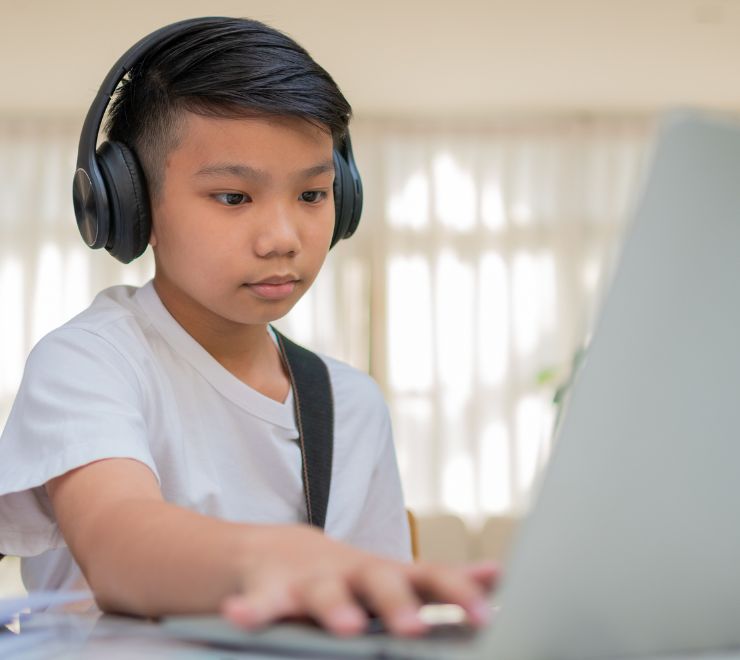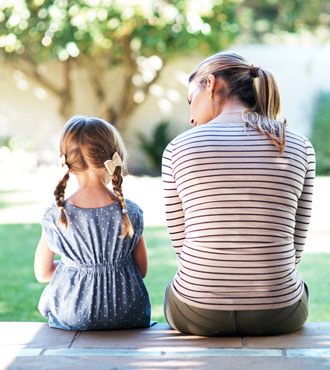Young people — and the adults who support them — may experience a range of reactions to going back to school/work during the COVID-19 pandemic. Having an idea of how to support the young people in your life with back to school this year — whatever that may look like for them — can be helpful for planning and everyone’s mental health and well-being.
Click on the image to download a PDF of Kids Help Phone’s tips for supporting youth with back-to-school adjustments during COVID-19.
3 tips to support youth with back to school during COVID-19
Here, Kids Help Phone shares three tips you can use to support the youth in your life with changes to back to school during the coronavirus disease outbreak. You can use these tips if and/or when they apply to you.
Tip #1: Start an open conversation
- Talk to the young person about how things may be different with school this year to help slow the spread of the virus. Check their school/school board’s website (if available) and go through the health and safety plans together. Remind them you’re here to help answer their questions and support them during this time.
- Visit trustworthy sources for current information about COVID-19. Doing so can help you feel more prepared to talk to the young person. Examples of credible resources include:
- COVID-19 resources for parents and children (Government of Canada)
- COVID-19 Learning Hub (AboutKidsHealth)
- COVID-19 Youth Mental Health Resource Hub (Jack.org)
Tip #2: Make a plan
- Find out if you or the young person can contact school staff or administration for more information about their reopening plans.
- Help the young person make any necessary back-to-school arrangements (e.g. choosing a safer route to school if they’re attending in person, identifying a quiet space to study if they’re doing distance learning, etc.).
- Together, make a list of things they need to participate in their classes (e.g. regular school supplies, technology, hand sanitizer, software, masks, etc.).
- Ensure they’re up to date with their distance learning from last year and do a refresher with them if needed. You can also help them identify other support resources for school (e.g. teachers, online tutors, guidance counsellors, student support centres, etc.).
- Remind them to try and get back into a regular routine and sleep schedule (if things have changed over the past few months).
- Share a back-to-school checklist with the young person to help them cope with change, organize their thoughts and manage their feelings.
Tip #3: Focus on mental health and well-being
- Remind the young person they’re never alone, and ask about their well-being. Check in on their feelings during this time, and work with them to find ways to cope with the uncertainty and change happening in the world. Emphasize the importance of nurturing mental, emotional, physical and spiritual health, especially during new and/or challenging times. By broaching this topic and being open to what young people say — the good and the bad — they’ll know they can reach out to you if they need to talk.
- If they share that they’re feeling stressed or anxious about school, try to avoid jumping right into problem solving. Validating their feelings, listening and taking the time to talk to them about what they’re experiencing can help them feel heard. You can also help them reflect on their current level of anxiety and think about what they need by directing them to an anxiety questionnaire.
- Support them with ongoing change through modelling, talking about and practising how to manage challenges and become more hopeful.
- Some helpful ideas you can encourage them to try include:
- keeping up with (or trying new!) hobbies
- participating in virtual cultural activities
- spending time in nature
- limiting screen time, especially just before bed
- building in time to connect with classmates, friends, teammates, partners, etc.
- practising self-care often and being kind to themselves
- taking things one day at a time
- talking to a safe adult if they need support
It’s important to be there for youth as the definition of back to school takes on new meaning. You can help make any adjustments easier by starting an open dialogue, having a plan and concentrating on mental health and well-being.
If you need someone to speak with during the COVID-19 pandemic (e.g. about going back to work, ways to manage stress, etc.), help is available. You can text a trained, volunteer crisis responder at 741741 or visit Wellness Together Canada for support.
Visit KidsHelpPhone.ca/COVID19 for more tools, resources and info during the coronavirus disease outbreak.
Brought to you with the support of:










